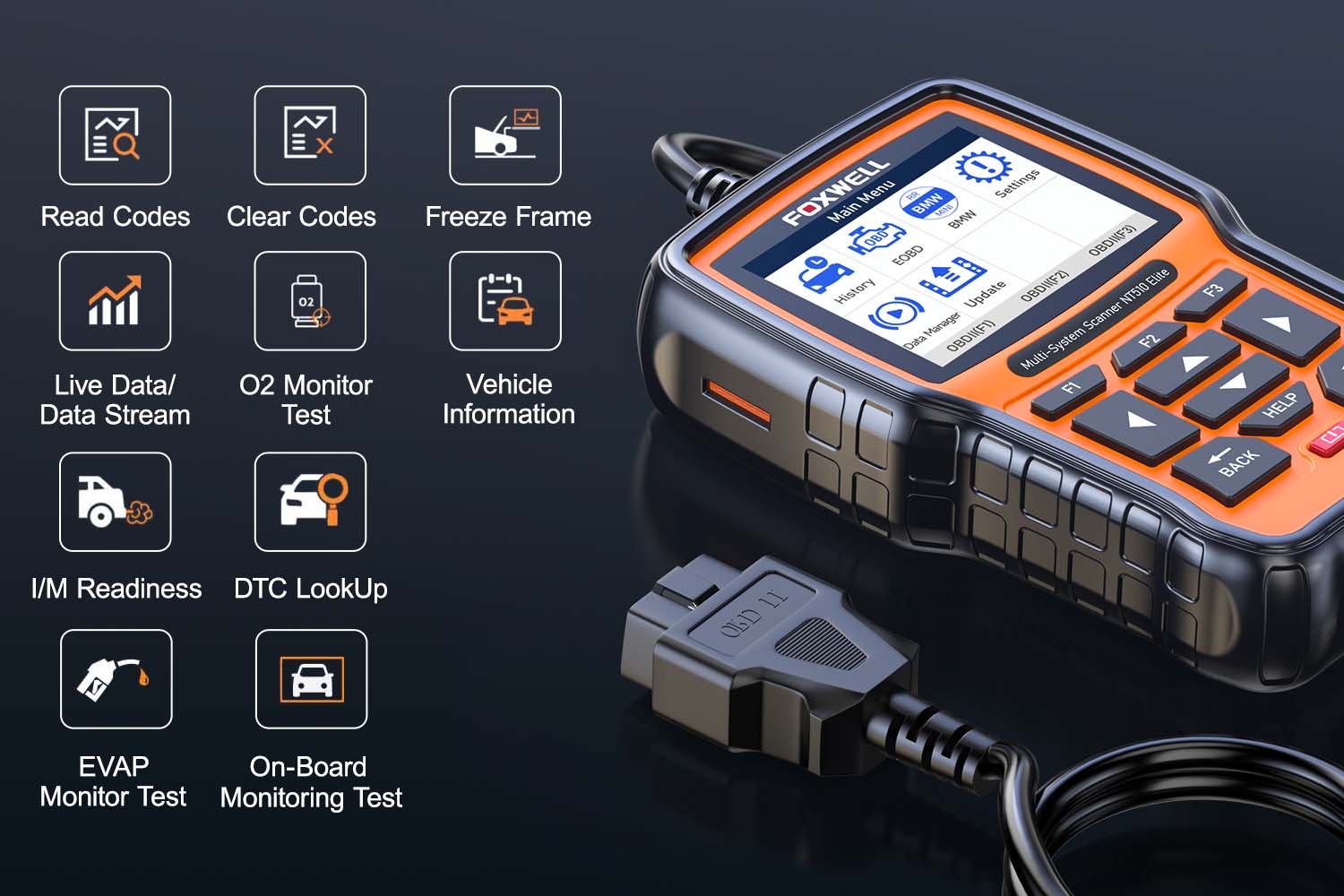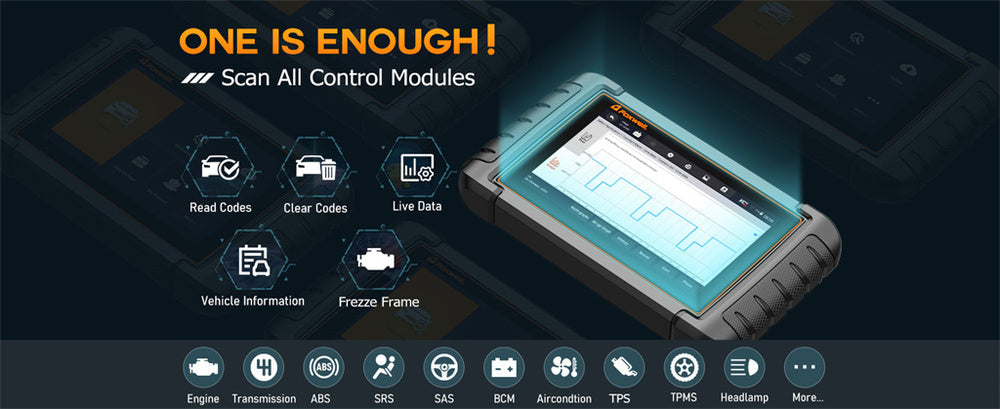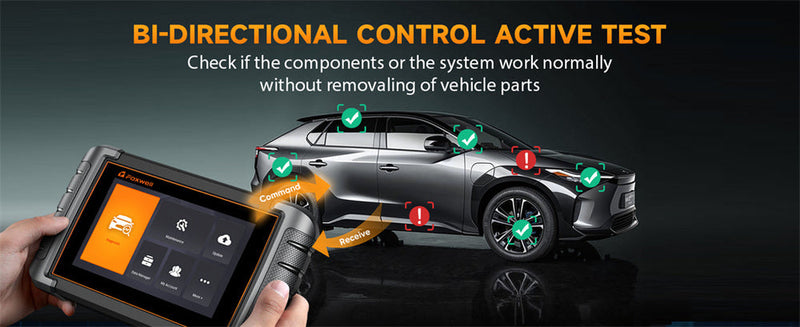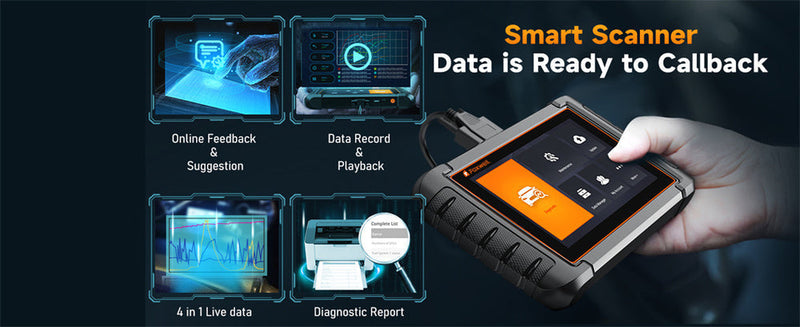Modern vehicles use fuel injectors as an integral component, injecting fuel directly into their combustion chambers.
These highly sophisticated devices allow drivers to adjust the amount and timing of fuel injection for optimal engine performance, fuel economy, emissions reductions, and emissions control. Their proper functioning is crucial to vehicle operation.
Over time, fuel injectors can become clogged, worn out, or malfunction due to various causes - rough idling, misfires, and poor economy issues for vehicle owners and technicians alike. Identifying and maintaining fuel injectors is vital to their maintenance and understanding of modern diagnostic tools like OBD2 scanners.

Understanding the Role of an OBD2 Scanner in Diagnosing Fuel Injectors
On-board diagnostics (OBD) systems have revolutionized vehicle diagnostics, with OBD2 scanners playing an essential role.
This system allows an electronic control unit (ECU) to communicate with a scanner, providing information on components such as fuel injectors.
An OBD2 scanner provides access to trouble codes, real-time data feeds, and diagnostic tests, which make this scanner invaluable in pinpointing problems such as clogged or malfunctioning injectors.
Preparing for the Fuel Injector Test
It's vital that you adequately prepare before testing fuel injectors using an OBD2 scanner. This includes gathering all necessary tools, understanding your vehicle's layout, and ensuring safety.
First, you will require an OBD2 scanner compatible with your vehicle model, and you can refer to the Foxwell OBD2 Scanner Manual for detailed instructions. Identify the diagnostic port typically located beneath the dashboard on the driver's side before parking on a flat surface with the engine off before connecting the scanner.
Foxwell Diagnostics' OBD2 Scanner makes it easy to check fuel injectors.
These steps ensure a smooth and accurate diagnostic process so you can examine fuel injectors effectively!
Preparation: To use an OBD2 scanner to check fuel injectors, you will require a compatible scanner like Foxwell's NT301 and a vehicle equipped with an OBD2 port, both standard features in modern cars produced after 1996. Follow these steps to prepare:
- Locate your vehicle's OBD2 port, usually found under the dashboard. Ensure the ignition is off before plugging the scanner in.
- Plug your OBD2 scanner into its port.
- Once connected:Retrieving Fuel Injector Data from Scanner
- Turn on the vehicle but not start the engine.
- Power on the scanner.
Select appropriate options to connect with ECU.
Access the "Live Data" or "Data Stream" menu on the scanner for data streams from ECU.
To diagnose fuel injector issues, focus on these parameters:
Fuel Trim: Indicates how the engine adjusts fuel delivery; significant positive or negative values could indicate injector issues. Injector
Pulse Width: Time the injector remains open; an abnormal pulse width could signal injector malfunctions.
Cylinder Misfire: If a specific cylinder experiences repeat misfires, its injector might be defective.
Diagnosing Injector Problems To diagnose injector issues:
Assess fuel trim, injector pulse width, and cylinder misfire data against normal values to identify any significant deviations that might signal injector issues.
Check for specific injector-related trouble codes, like P0200, that indicate injector circuit malfunction.
Once injector issues have been identified, minor buildup can be addressed using a fuel injector cleaner kit or a fuel injector cleaner machine, which allow DIY enthusiasts or home mechanics to clean injectors effectively and ensure optimal fuel delivery and smoother engine operation.
Once cleaned, you can proceed to clear any injector-related codes and reset your system:
- Utilize the Foxwell OBD2 scanner to clear injector codes stored by your OBD2.
- Reset your ECU to monitor for further injector issues.
Using a Foxwell OBD2 scanner for fuel injector diagnostics provides additional advantages, including early issue detection, improved fuel economy, reduced emissions, and ease of use and maintenance.
Also read: Can You Code Injectors with a Scan Tool?
Benefits of Using OBD2 Scanners from Fuel Injector Diagnostics
Foxwell Diagnostics OBD2 scanners offer several key advantages over traditional diagnostic methods in early issue detection, including fuel injector issues that could otherwise lead to reduced engine performance or potentially more extensive engine damage if left unaddressed.
Avoiding Engine Damage
Fuel injectors are essential to proper engine functioning; problems with them could result in improper fuel delivery or misfires, causing severe engine issues.
An OBD2 scanner like Foxwell's NT301 allows early identification and resolution of these fuel injector issues, reducing costly repairs while prolonging engine lifespan.
Improving Engine Performance
Drivers can maximize engine performance in their vehicles by promptly diagnosing and rectifying fuel injector issues.
Efficient injection leads to more excellent responsiveness, acceleration, and smoother operations, resulting in enhanced responsiveness, acceleration, and smoother operations.
Increased Fuel Efficiency
An OBD2 scanner for fuel injector diagnostics can also improve your engine's fuel economy by helping detect malfunctioning injectors that run too rich or lean and negatively affect it.
Optimizing Fuel Delivery
A professional OBD2 scanner such as the Foxwell NT510 Elite can ensure fuel injectors dispense the fuel necessary, preventing wastage and improving economy and cost savings in the long run.
Monitoring Fuel Trim
While Foxwell OBD2 scanners allow real-time monitoring of fuel trim levels, which shows how your engine adjusts fuel delivery. By keeping fuel trim within optimal levels, drivers can ensure efficient consumption while decreasing unneeded usage.
Properly functioning fuel injectors contribute to lower emissions, benefiting both the environment and vehicle health. Faulty injectors may cause incomplete combustion of the fuel source, increasing harmful gases into the atmosphere.
Lowering Harmful Emissions
OBD2 scanners used for fuel injector diagnostics help drivers identify issues that increase emissions, such as leaky fuel lines or incorrect mixtures, to address and lower them - contributing to cleaner environments.
Passing Emissions Tests
Vehicles must pass emissions tests in many regions to remain roadworthy. An OBD2 scanner from Foxwell Diagnostics can help ensure vehicles meet emissions standards by diagnosing and correcting fuel injector issues, eliminating test failures and potential fines.
Foxwell Diagnostics' OBD2 scanners are specifically designed to make fuel injector diagnostics accessible to both professionals and DIY enthusiasts.
User-Friendly Interface
Foxwell OBD2 scanners feature user-friendly interfaces with clear menus and easy-to-grasp diagnostic information, making diagnosis and fixing fuel injector problems more straightforward for even those without extensive mechanical knowledge.
Comprehensive Diagnostics
Foxwell scanners provide thorough diagnostic capabilities, with live data streaming, freeze frame data storage, and detailed code definitions available to users for accurate fuel injector issues and potential causes. This enables effective repair procedures.
Foxwell Diagnostics' OBD2 scanners offer substantial benefits for vehicle maintenance and performance.
By detecting fuel injector issues early, these scanners allow early correction while optimizing efficiency, lowering emissions, and guaranteeing smooth vehicle operation.

conclusion
Foxwell OBD2 scanners feature user-friendly interfaces and comprehensive diagnostic capabilities, enabling drivers and mechanics to quickly detect fuel injector issues and address them.
Early diagnosis helps avoid engine damage, improve performance, and contribute to cleaner environments; furthermore, functioning injectors result in cost savings and more economical driving experiences.
Foxwell Diagnostics OBD2 scanners provide professional mechanics or do-it-yourself enthusiasts with powerful diagnostics tools for vehicle diagnosis, particularly fuel injector health.
Their user-friendly designs, detailed data collection, and robust performance make these scanners invaluable assets in vehicle maintenance and diagnostics, helping ensure your car remains in optimum condition.
FAQs
Can all OBD2 scanners detect fuel injectors?
No. Only specific advanced models offer this capability.
How should I use an OBD2 scanner to inspect fuel injectors?
At least once annually or whenever issues arise.
Can an OBD2 scanner fix fuel injector issues?
No. However, it can help identify them but does not fix them.
You Might Also Like
- An Article to Thoroughly Understand What Obd2 Scanner Can Do
- Unlocking the Money-Saving Secrets of Car Scanners
- The Preventive Maintenance Capabilities of Obd2 Scanners
- Best OBD2 Scanner with TPMS Reset for Enhanced Vehicle Diagnostics
- What You Need to Know About the Best Obd2 Scanners with ABS and SRS?





Leave a comment
This site is protected by hCaptcha and the hCaptcha Privacy Policy and Terms of Service apply.